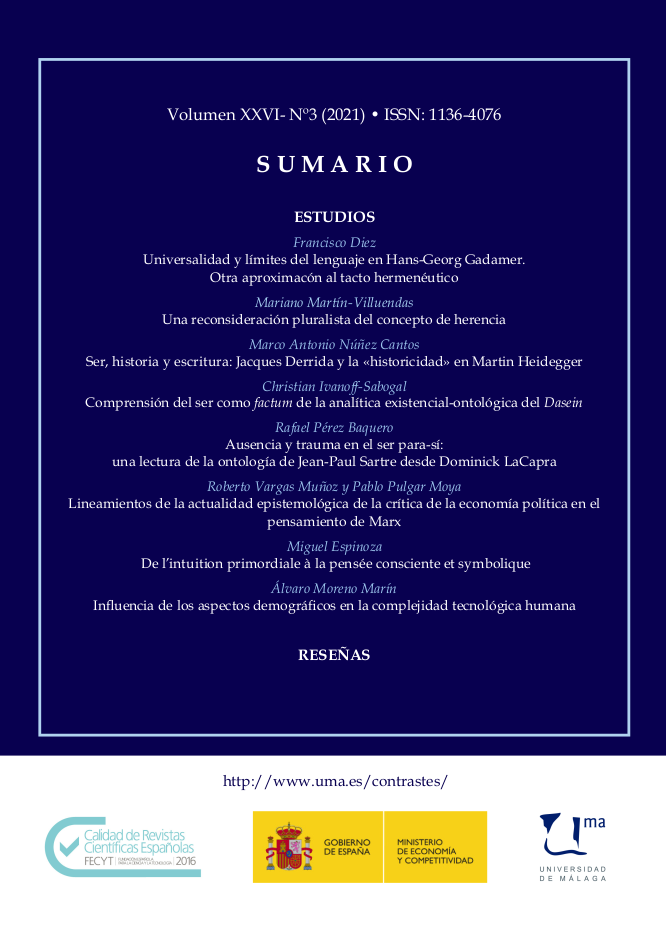From primordial intuition to conscious and symbolic thinking
DOI:
https://doi.org/10.24310/Contrastescontrastes.v26i3.10599Keywords:
primordial intuition, symbolic thinking, natural continuity, comprehensive naturalismAbstract
The philosophy of nature that gives sense to the problem concerning the relationship between primordial intuition and symbolic thinking is a speculative system coherent and necessary, metaphysically realist and naturalist. The continuity between the different strata of nature makes it possible to imagine, first, that primordial intuition takes place in a region where the physicochemical stratum and living matter intertwine, secondly, that symbolic thinking emerges from primordial intuition.
Downloads
Metrics
References
ARISTOTE, Physique, texte établi et traduit par Henri Carteron, Les Belles Lettres, Paris, 1990.
CHAMOVITZ, Daniel, What a plant knows: A Field Guide to the Sense, Scientific American / Farrar, Straus and Giroux, 2012.
ESPINOZA, Miguel Espinoza, A Theory of Intelligibility. A Contribution to the Revival of the Philosophy of Nature, Thombooks Press, Toronto, ON, 2020.
___, Pensar la naturaleza. Epistolario filosófico, Biblioteca Magna, Uniediciones, Bogotá, 2020.
LARGEAULT, Jean, Principes de philosophie réaliste, Klincksieck, Paris, 1985.
___, Intuition et intuitionisme, Vrin, Paris, 1993.
THOM, René, Apologie du logos, Hachette, Paris, 1990, p. 324.
___, Esquisse d’une sémiophysique. Physique aristotélicienne et Théorie des catastrophes, Inter Éditions, Paris, 1988.
Downloads
Published
How to Cite
Issue
Section
License
This journal provides immediate free access to its content under the principle of making research freely available to the public. All content published in Contrastes. Revista Internacional de Filosofía, are subject to the Creative Commons Attribution-NonCommercial-ShareAlike 4.0 license whose full text can be found at <http://creativecommons.org/licenses/by-nc-sa/4.0>
It is the responsibility of the authors to obtain the necessary permissions of the images that are subject to copyright.
Authors whose contributions are accepted for publication in this journal will retain the non-exclusive right to use their contributions for academic, research and educational purposes, including self-archiving or repository in open access repositories of any kind.
The electronic edition of this magazine is edited by the Editorial Service of the University of Malaga (Uma Editorial), being necessary to cite the origin in any partial or total reproduction.









5.png)
